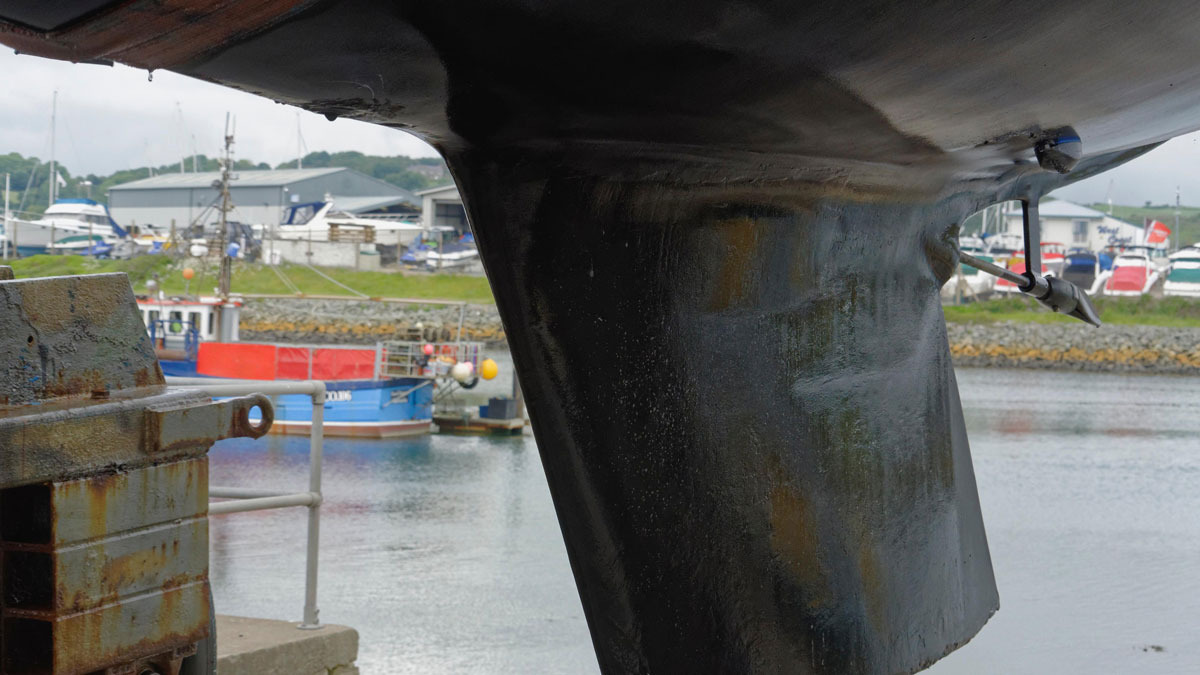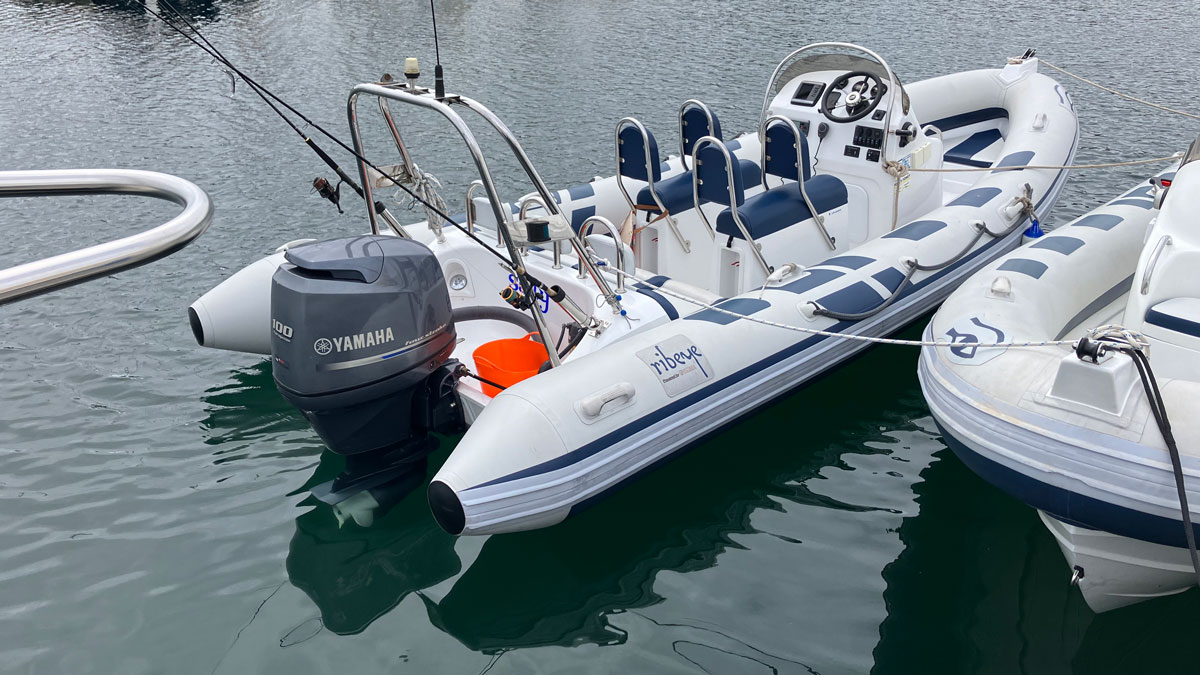Filters have been attached to Falmouth Harbour’s industrial washing machines in the marina amenity centre to try and reduce plastic microfibre pollution
-
Falmouth Harbour Commissioners has installed industrial INDIKON microfibre filters in its industrial washing machines to try and cut plastic microfibre pollution.
The project – which is claimed will prevent around 91 million microfibres a year from entering and polluting the water – is being run in partnership with the Cleaner Seas Group
Research by the International Union for Conservation of Nature (IUCN) has found that microfibres from synthetic fabrics are the largest source of primary microplastics in our oceans.

Cleaner Seas Group Indi microfibre filter unit attached to a domestic washing machine. Credit: Cleaner Seas Group
“Washing our clothes seems a harmless enough activity,” says Falmouth Harbour’s Environment Manager Vicki Spooner, “but if we all took steps to prevent the microfibres from our washing machines entering our oceans we could collectively make a vast reduction in the amount of pollution affecting ecosystems, marine life, and our food chain.
“By partnering with the Cleaner Seas Group – as the first harbour authority in the world to do so – we want to spread the word and awareness of what every household could do in a small way to become part of a solution to a major problem.”
Continues below…
Why are boat owners being urged to switch to aluminium anodes?
Boat owners and boatbuilders across the UK are being urged to switch from zinc to aluminium anodes to help marine…
RIB driver who sped around 18 knots in inner harbour fined £3,000
This is the first time new high-definition CCTV camera footage has been used by the Falmouth Harbour Authority in a…
‘Public needs greater access to refillable products’ finds marine conservation report
Last year, 14,000 volunteers for the Marine Conservation Society removed 17,208kgs of litter from our coast.
The Cleaner Sea Group originally developed a smaller Indi home microfibre filter, made from 100% recycled plastic.
The filter unit takes 10 minutes to install.
It plugs into any washing machine to remove the millions of microfibres washing out of clothes each year, with a circular cartridge return and recycle system meaning the microfibres do not end up in landfill either.
The INDIKON filter – now installed in Falmouth Harbour’s industrial washing machines in the marina amenity centre – was launched last year as a scaled-up version of the Indi home filter, adapted to take on microfibre pollution on a much greater scale.

The INDIKON filter has been installed in Falmouth Harbour’s industrial washing machines in the marina amenity centre. Credit: Cleaner Seas Group
“Research is growing and microfibres have now been found in the water we drink, the food we eat and the air we breathe,” says Dave Miller Co-founder and CEO of Cleaner Seas Group, which is a global team of innovators, designers, entrepreneurs and environmentalists working together to restore and protect oceans.
“We are dedicated to creating solutions to tackle this problem on a global and local scale. Everyone can do their bit and, in this case, it is game-changing to partner with Falmouth Harbour: as the gateway to the Atlantic Ocean it is leading the way in reducing impacts on the environment and is perfectly placed to raise the profile of the huge problem of microfibres and work with us to do something about it.”







